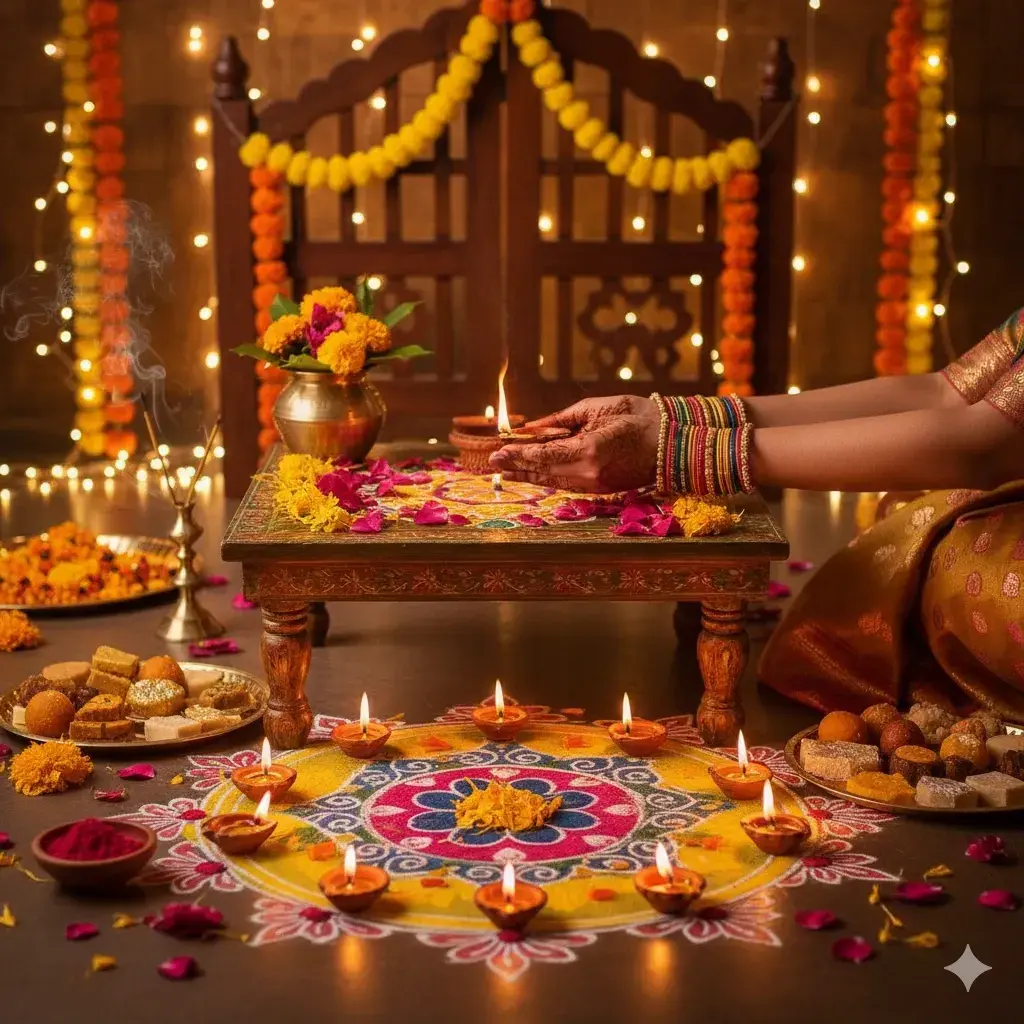(Image Source - Nano Banana)
Every Diwali, I come back home.
No matter where I am or what I’m doing, something about this time of year pulls me back: like gravity.
And maybe it’s just me, but Jaipur knows how to celebrate Diwali like nobody’s business.
There have been one or two years when I’ve had to spend Diwali away from this city, and boy, have they sucked.
If you ever get the chance, I would highly implore you to spend one Diwali here. The whole city is lit up like a thousand chandeliers. I’m convinced the circadian rhythm collectively resets itself every year because melatonin simply gives up trying to figure out when night begins.
Every street glows, every shopfront competes in sparkle, and I’m pretty sure if the World Happiness Rankings were conducted during this week in Jaipur, we’d make India proud.
There’s a radiant civic joy that seeps into every home, every corner, every conversation. And each year, I feel the same quiet pull to return to it all: to the laughter, the noise, the sweet chaos that defines what home feels like.
The friends who now live in other cities somehow all land up in town at once.
The same old colony lights up again.
There’s the familiar smell of mithais, the unopened packets of that absolute travesty that is soan papdi, and my parents insisting that the cupboards really needed cleaning this year.
It’s all wonderfully predictable.
And maybe that’s exactly why it feels grounding.
If you asked me why we do all this: the diyas, the sweets, the card games, the same tired jokes, I probably couldn’t give you a rational answer. It’s habit, sure. But it’s also something deeper. A quiet rhythm that brings us back to where we began, and to who we are when we’re with the people who know us best.
That, to me, is the power of rituals.
Even when their original purpose fades, their rhythm keeps things and people, alive.
Rituals provide an anchor.
Anthropologists often describe rituals as social glue: repeated acts that help communities coordinate, belong, and remember.
But I’ve started to think they’re also antidotes to loneliness.
In a world where we live increasingly atomized lives, often surrounded by people but starved of connection, rituals create scheduled intimacy. They give structure to our togetherness.
Birthdays. Friday night dinners. Sunday phone calls. The morning walk with that one friend. These aren’t just habits, they’re micro-anchors that remind us we exist in relation to others.
Research backs this up. Psychologists have found that people who participate in community or family rituals report significantly lower levels of loneliness and higher emotional well-being. Research specific to global Blue Zones shows that in the world’s longest-lived communities, social belonging is foundational: regular participation in faith or community groups (about four times a month) is associated with adding roughly 4–14 years to life expectancy. The predictability of a ritual, knowing someone will show up, that the same thing will happen again, gives us a sense of continuity in a world that’s otherwise in constant flux.
We talk a lot about innovation and novelty today, but sometimes, meaning hides in repetition.
Maybe that’s why rituals appear in every culture, in every era: different in form, identical in function.
Rituals are how humans make the invisible visible.
Love turns into festivals. Gratitude turns into prayers. Grief turns into ceremonies.
They don’t just mark moments; they help us process them.
We light lamps not because the darkness outside needs defeating, but because the act itself reminds us that we still can.
Even the smallest ritual: lighting an incense stick, calling a friend every week, keeping a promise to yourself, can create a sense of belonging that data or dopamine can’t replicate.
Maybe that’s why loneliness feels so heavy: because it’s the absence of shared rhythm. The absence of someone else keeping time with you.
Rituals fix that. They bring synchronization.
They remind us that meaning is rarely built in isolation, it’s built through repetition, participation, and presence.
Which brings me back to Diwali.
For all its grandeur and mythology, it’s really just that same.
Diwali, at its heart, is a ritual of return.
We go back home. We reconnect. We realign.
Every lamp we light is both a signal and a memory: that someone, somewhere, will always be waiting with warmth.
In an age that glorifies reinvention, maybe the quiet strength lies in repetition. In doing the same thing again, with the same people, in the same place.
Because while novelty excites, ritual sustains.
And perhaps, in a world growing lonelier by the day, the greatest act of rebellion is to keep showing up: for family, for friends, for ourselves.
So here’s a question worth pondering:
What small ritual in your life quietly keeps you connected: to people, to place, or to purpose?
Write to us at plainsight@wyzr.in, and we’ll share some of your stories in the next edition.
What we’re reading this week
The Power of Ritual by Casper ter Kuile. A thoughtful exploration of how sacredness can be found in the secular, and how modern rituals: from group workouts to book clubs can bring belonging back into our lives.
Wish you and your loved ones, a Happy Diwali from Team Wyzr & Narratives.
Until next week,

